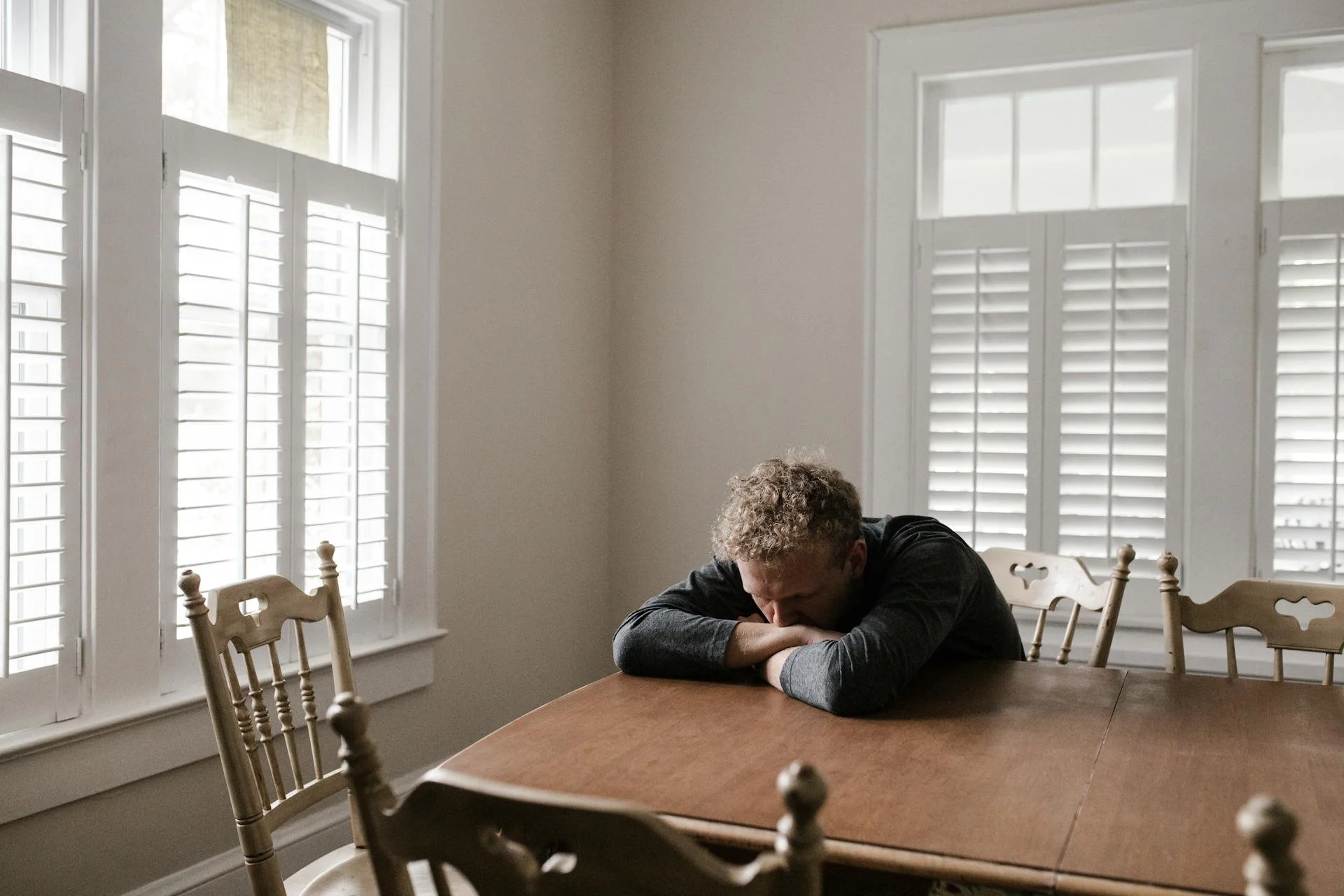How Psychiatrists Help People with Anxiety Disorders
Anxiety is a common experience, a natural response to stress or perceived danger. However, for some individuals, these feelings of worry, fear, and unease can become persistent and overwhelming, interfering with daily life. These more intense and lasting experiences are often related to what we call Anxiety Disorders. It's not simply about feeling stressed before a big event; it's a condition that can affect your ability to work, socialize, and even rest.
Think of anxiety as a spectrum. On one end, you have the normal, everyday worries that most people experience. On the other end are the Anxiety Disorders, where the worry is excessive, difficult to control, and often accompanied by physical symptoms. These disorders can manifest in various ways, and understanding them is the first step toward finding relief.
Some common signs you might notice include:
Persistent, excessive worry about everyday things
Feeling restless or on edge
Muscle tension or trembling
Difficulty concentrating or sleeping
A sense of impending doom or panic
Avoiding situations that trigger anxiety
These symptoms aren't just minor inconveniences; they can significantly impact your quality of life. For instance, someone with social anxiety might find it hard to build relationships, while another person with generalized anxiety might struggle to focus at work. It's important to remember that experiencing these symptoms doesn't mean you are weak or that you should just
The Role of the Psychiatrist in Anxiety Treatment
When you're dealing with anxiety, figuring out what's going on and how to manage it can feel overwhelming. That's where a psychiatrist comes in. Think of them as your guide through the complexities of anxiety disorders. They're medical doctors who specialize in mental health, and they have a unique set of skills to help you feel better.
Accurate Diagnosis: The First Crucial Step
Getting the right diagnosis is really the starting point for everything. It's like trying to fix a car without knowing what's broken – you'll just be guessing. A psychiatrist will talk with you, ask about your history, and might use some specific tools to figure out exactly what kind of anxiety you're experiencing. This isn't just about putting a label on things; it's about understanding the specific ways your anxiety shows up so the treatment can be tailored just for you. This careful assessment helps avoid guesswork and sets the stage for effective treatment. Sometimes, symptoms can overlap with other conditions, so having a top psychiatrist confirm the diagnosis is important.
Developing a Personalized Treatment Plan
Once a diagnosis is made, the psychiatrist works with you to create a plan. This isn't a one-size-fits-all approach. They consider your specific symptoms, your overall health, your preferences, and even your lifestyle. The plan might include a mix of different things, like medication, therapy, or even suggestions for lifestyle changes. It’s a collaborative process, meaning you're involved in the decisions about your care. They'll explain the options, what to expect, and how each part of the plan is meant to help.
It's important to remember that anxiety is a medical condition, and seeking help is a sign of strength. A psychiatrist's goal is to help you manage your symptoms and improve your quality of life, making it possible to live more fully.
Pharmacological Interventions: Medication Management
When you're dealing with an anxiety disorder, medication can be a really helpful tool. It's not usually the only thing we do, but it can make a big difference in managing those overwhelming feelings. Psychiatrists are trained to figure out which medications might work best for you, considering your specific symptoms and overall health. It's a process, and sometimes it takes a bit of trying different things to find the right fit.
Types of Medications Used for Anxiety
There are a few main categories of medications that psychiatrists often use for anxiety. Each works a bit differently, and what works for one person might not be the best choice for another. We'll talk about these more, but generally, they include antidepressants, buspirone, and sometimes, for short-term relief, benzodiazepines.
Antidepressants: These are often the first choice. Medications like SSRIs (Selective Serotonin Reuptake Inhibitors) and SNRIs (Serotonin-Norepinephrine Reuptake Inhibitors) help balance certain chemicals in your brain that affect mood and anxiety. It can take a few weeks to start feeling the effects, so patience is key here.
Buspirone: This is another option that can be taken regularly. It is mainly used for generalized anxiety disorder and may not work for all types of anxiety. Like antidepressants, it might take some time to see the full benefits.
Benzodiazepines: These are usually prescribed for short periods to help with intense, sudden anxiety because they work quickly. However, they can be habit-forming, so they're used with caution, especially if there's any history of substance use.
Monitoring and Adjusting Medications
Once you start a medication, the work isn't done. Your psychiatrist will want to keep a close eye on how you're doing. This means regular check-ins to see if the medication is helping, if you're experiencing any side effects, and if any adjustments are needed. It's really important to communicate openly with your doctor about your experiences. Sometimes, we might need to change the dose, switch to a different medication, or add another one to get things just right. This ongoing conversation helps make sure your treatment stays effective and safe for you.
Psychotherapy: Talking Through Anxiety
Sometimes, talking things through can be a really helpful part of managing anxiety. It's not just about venting; it's about understanding how your thoughts, feelings, and actions connect and how they might be keeping anxiety going. Psychiatrists may provide psychotherapy themselves, or they may collaborate with psychologists and therapists to ensure you receive the right kind of talk therapy.
Cognitive Behavioral Therapy (CBT)
This is a very common and effective approach. CBT helps you look at the patterns in your thinking and behavior that might be contributing to your anxiety. The idea is that if you can change unhelpful thought patterns and reactions, you can start to feel better. You'll learn practical skills to manage anxious feelings and gradually face situations you've been avoiding. It often involves homework, like practicing new ways of thinking or trying out behaviors you've been hesitant about.
Other Effective Therapies
Beyond CBT, there are other therapies that can make a real difference. Exposure therapy, for instance, is about gently and safely facing the things that trigger your anxiety. Psychiatrists may recommend or coordinate exposure therapy, often working alongside therapists trained in this method. By doing this step-by-step, you can learn that you can handle these situations and that your anxious feelings lessen over time.
Other approaches might focus on mindfulness, helping you stay present and less caught up in worries about the past or future. Your psychiatrist can discuss these options with you to see which might be the best fit for your specific needs.
It's important to remember that therapy is a collaborative process. Your psychiatrist is there to guide you, but your active participation and willingness to try new approaches are key to making progress.
Lifestyle and Self-Care Strategies
Beyond professional guidance, you have a lot of power to influence how you feel day-to-day. Think of these as tools you can use to support your mental well-being. They aren't a replacement for treatment, but they can certainly make a difference.
Stay Active
Moving your body regularly is a really effective way to manage stress. It doesn't have to be intense; even a daily walk can help lift your mood and keep you feeling healthier overall. Try to build a routine where you're active most days. Start gently and slowly increase how much you do and how hard you work.
Mindful Eating and Habits
What you eat and drink can impact your anxiety levels. Focusing on a diet rich in vegetables, fruits, and whole grains is generally good for your health. It's also wise to be mindful of substances that can stir up anxiety. Limiting caffeine, nicotine, and alcohol may help, since these substances can sometimes increase anxiety.
Prioritize Sleep
Getting enough quality sleep is incredibly important. When you're well-rested, you're better equipped to handle stress. If you're struggling to get good sleep, it's worth discussing this with your doctor.
Relaxation and Stress Management
There are many techniques that can help calm your nervous system. Things like deep breathing exercises, meditation, or gentle yoga can be very soothing. Finding what works for you and making it a regular practice can be quite beneficial.
Connect and Engage
It can be tempting to withdraw when you're feeling anxious, but staying connected with others is important. Don't let worries isolate you from friends, family, or activities you enjoy. Sometimes, just talking to someone you trust can make a big difference.
Learn Your Triggers
Paying attention to what situations, thoughts, or feelings tend to bring on your anxiety can be very helpful. Once you identify these, you can work with your mental health provider to develop strategies for managing them when they arise. Keeping a journal can be a great way to track these patterns.
Making small, consistent changes in your daily life can build a strong foundation for managing anxiety. It's about finding a balance that supports your overall well-being.
When to Seek Professional Help
It's completely understandable to feel worried or stressed sometimes; it's a normal part of life. However, if these feelings start to interfere with your daily activities, relationships, or overall well-being, it might be time to reach out for support. You don't have to manage these challenges alone. Recognizing when anxiety is becoming overwhelming is a sign of self-awareness, not weakness.
Signs It's Time to Connect with a Professional
Persistent and Excessive Worry: If you find yourself worrying about many different things, often more than seems reasonable, and you struggle to control these thoughts.
Physical Symptoms: Experiencing physical signs like restlessness, feeling on edge, muscle tension, fatigue, difficulty concentrating, or sleep disturbances that aren't easily explained by other causes.
Avoidance Behaviors: Actively avoiding situations, people, or places because of intense fear or worry, which limits your life.
Panic Attacks: Having recurrent, unexpected panic attacks, which are sudden episodes of intense fear that can include heart palpitations, sweating, trembling, and a sense of losing control.
Impact on Daily Life: Your anxiety is making it hard to work, study, maintain relationships, or enjoy activities you once liked.
Preparing for Your Appointment
When you decide to seek help, preparing for your first appointment can make the process smoother. Consider the following:
List Your Symptoms: Write down what you're experiencing, including how often it happens and how it affects you. Note any physical sensations, thoughts, or behaviors associated with your anxiety.
Identify Triggers: Think about situations, events, or thoughts that seem to worsen your anxiety.
Note Your Medical History: Be ready to share information about any existing medical conditions and any medications you are currently taking.
Consider Your Support System: Think about who you can talk to for support, like family or friends.
Reaching out for professional help is a positive step toward feeling better. A psychiatrist can help you understand your anxiety and develop a plan tailored to your specific needs, which might include therapy, medication, or lifestyle adjustments. Remember, seeking help is a sign of strength and a commitment to your own well-being.
Taking the Next Step Towards Feeling Better
So, you've learned a bit about how psychiatrists can help with anxiety. It's really about finding the right mix of tools for you, whether that's talking through things in therapy, maybe trying some medication, or even making some small changes in your daily life. Remember, everyone's situation is different, and a psychiatrist works with you to figure out what fits best. It takes courage to seek help, and it's a really positive step toward feeling more like yourself. Don't hesitate to reach out and start that journey.
Frequently Asked Questions
How can a psychiatrist help me with my anxiety?
Psychiatrists are medical doctors who specialize in mental health. They can help by figuring out exactly what kind of anxiety you have. Then, they create a plan just for you, which might include talking therapies, medicines, or advice on how to make lifestyle changes that can help you feel better.
Can psychiatrists give me medicine for anxiety?
Yes, psychiatrists can prescribe medications like antidepressants (SSRIs and SNRIs) and sometimes anti-anxiety drugs for short-term use. They carefully choose the right medicine and watch to make sure it's working well and safely for you.
Do psychiatrists also offer talk therapy for anxiety?
Absolutely. Psychiatrists often use talk therapy, like Cognitive Behavioral Therapy (CBT). CBT helps you understand your anxious thoughts and behaviors and teaches you ways to change them. Other therapies, like exposure therapy, can also be very helpful.
How does a psychiatrist figure out if I have an anxiety disorder?
A psychiatrist will first talk with you to understand your symptoms and medical history. They may use structured interviews or questionnaires to support their evaluation, along with a detailed discussion of your symptoms and history to make sure they have the right diagnosis. This careful diagnosis is key to creating the best treatment plan for you.
When should I consider seeing a psychiatrist for anxiety?
It's important to seek help if you feel worried or scared much of the time, have trouble sleeping or concentrating, or if anxiety is getting in the way of your daily life. Reaching out is a sign of strength, and it's the first step toward feeling better.
Is medication the only treatment psychiatrists offer for anxiety?
Many people find that a mix of medicine and talk therapy works best. Psychiatrists can also guide you on helpful lifestyle changes, like exercise, stress management, and getting enough sleep, which all play a role in managing anxiety.






















